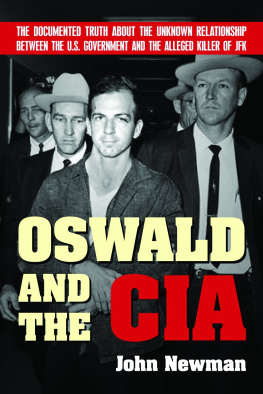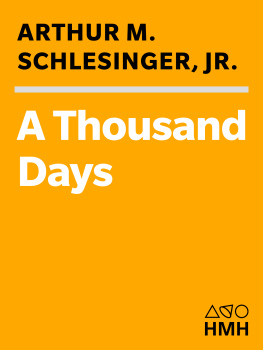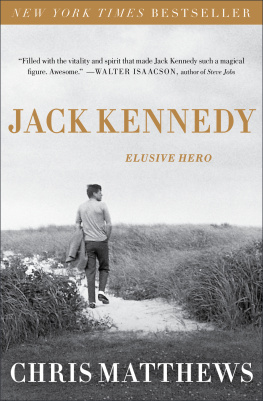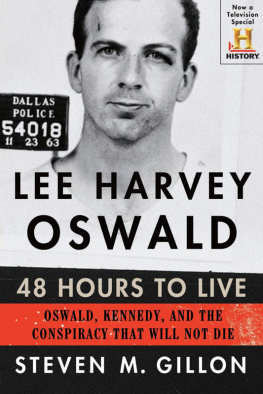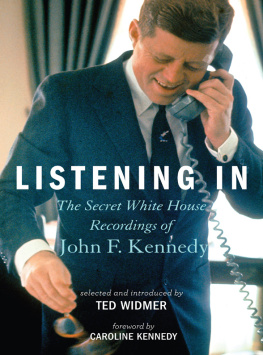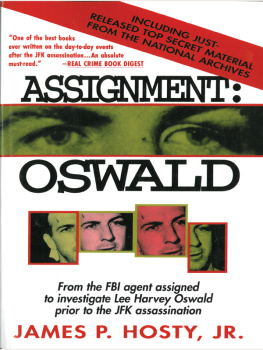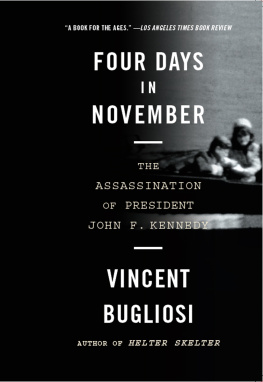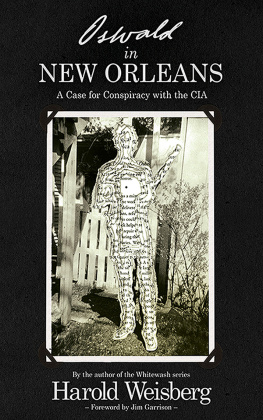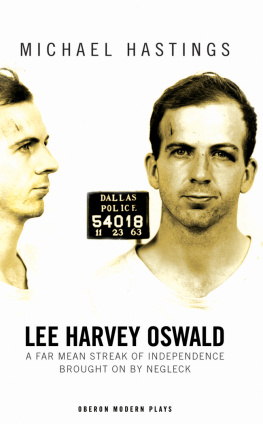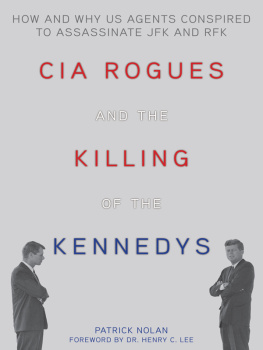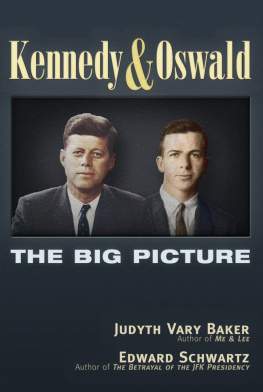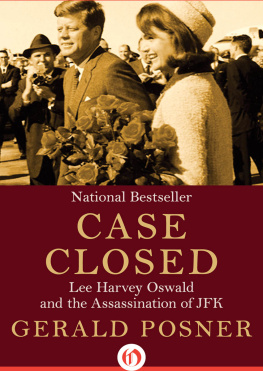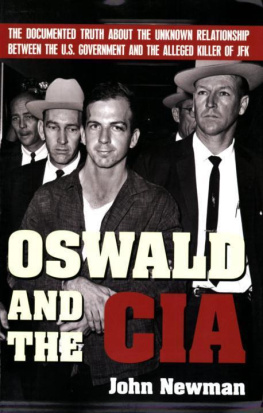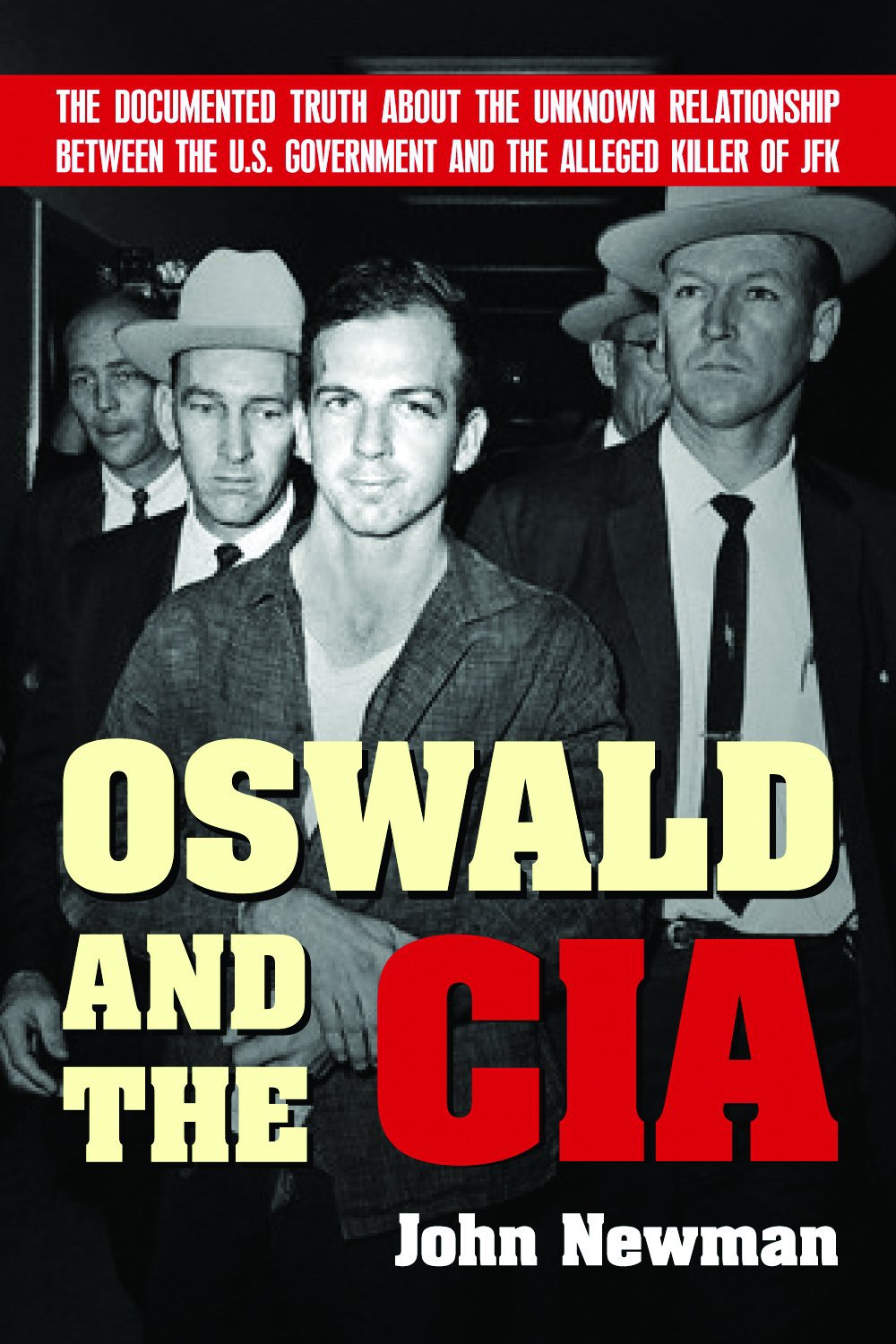Acknowledgements
I would like to thank the JFK Assassination Records Review Board, especially the staff, which went out of their way to ensure that I was informed of the latest releases, no matter how small. I enjoyed meeting and speaking with some of the staff as they set about the daunting task of studying the large bureaucracies whose documents they would be working with. My manuscript and all my files have been available to the staff from early on. I hope this work will assist the board in the difficult choices it faces in prioritizing its work.
How is it that we suddenly have so much to study? The reason that the case has survived so long is the same reason that Congress finally decided to declassify it: lack of trust. American citizens have worked tirelessly to free the documents in the governments possession. Erroneously ridiculed by the national media as the lunatic fringe, most of these people are mainstream Americans who have always understood the wisdom of working within the system. Many of them spent years using the Freedom of Information Act (FOIA) to pry loose documents. Harold Weisberg, Mark Allen, Gary Shaw, Paul Hoch, Bernard Fensterwald, Jr., James Lesar, Gordon Winslow, and Bill Adams are a few among many who have worked within the lethargic constraints of the FOIA over the past several decades. Eventually their efforts and the efforts of many more people resulted in the bipartisan passage of the 1992 JFK Records Act.
Some thanks to specific researchers are in order. First of all to Mary Ferrell. I sent her many thousands of pages of new documents which she added to her database, which I then used as the cross-grid between the new releases and prior government investigations. Mary has always been a tireless and selfless research assistant for everyone who has asked her help. A special thanks also to Scott Malone, whose contacts and comments aided greatly in the early phases of this work. Scott also made his documents and interview notes available, materials I found useful further down the line. A special thanks is also due to David Lifton. I had the benefit of Davids early thinking on several issues important to this bookas he did to my early views and documents. For the most part, however, our two projects have been conducted separately, and it will be interesting to see the result. Norman Mailer and I spoke twice briefly as his book was finished and this book entered the final chapters. Norman suggested then that we were staking out base camps on opposite sides of the mountain.
Thanks also go to Larry Haapanen, who has been a reliable and highly sensitive source in Idaho. Larry helped on several points and made available his valuable .documentary collection. Paul Hoch also made his documents available, along with his prolific notes and correspondence. Bill Adams, Peter Vea, Bill Davy, Jim Di Eugenio, Steve Vetter, Lamar Waldron, and Mike Willman made available hundreds of documents, rare manuscripts, and other materials that were used in this book.
Peter Dale Scott gave generous amounts of time and energy to document acquisition, processing, cross-referencing, and analysis and discussion. I am especially grateful to Anthony and Robbyn Summers for the generous assistance they gave on several occasions, including the interview with Silvia Duran. Several volunteers from the community and interns from the University of Maryland helped in the long and tedious assembling and cross-filing of data necessary for a work like this. Debbie Drucker, Suzanne Adamko, Nassir Khan, David Vivian, Tracy Vaughn, and Adrienne Freda permitted far more ground to be covered than would otherwise have been possible. John Taylor and John Harvey, in particular, spent many nights copying and filing documents. Without their efforts this book would not have been possible. Melissa Burneston was particularly helpful in the preparation of the footnotes.
To Richard Helms, Jane Roman, June Cobb, Ray Rocca, Scotty Miler, Russell Holmes, Robert Bannerman, Paul Garbler, Otto Otepka, Richard Snyder, John McVickar, Priscilla Johnson, Ned Kenan, Silvia Duran, Gerry Hemming, James Hosty, Larry Keenan, Nicholas Anikeeff, and the many others with whom I conducted formal interviews or background discussion, I thank you for taking the time to run yet another gauntlet of questions.
A special thanks to Ed Jeunovitch, whose many decades of experience in the CIAs Clandestine Services made him uniquely qualified to discuss some of the tougher issues these documents raise. Ed earned my admiration for his openness, honesty, and willingness to engage in genuine give-and-take discussion. I do not mean to imply that anything in this book has Eds approval or reflects his views, but his persuasiveness and his willingness to give credit where it is due went a long way in convincing me that many among the Agencys mainstream have no desire to stand in the way of the truth.
To all of the dedicated National Archives employees who put up with the researchers and the national media, I take my hat off. Especially to Steve Tilley, who took time from the heavy demands of his schedule to go the extra mile in giving support to this project. Two of the largest logistical problems recently faced by the Archives occurred back to back: the quick processing of an enormous volume of new JFK documents and then the move of the entire collection to the new Archives II location in College Park, Maryland. The discipline and organization of the Archives staff made it possible to keep the records open nearly the entire time before and after the move.
During the work on this, my second book, my family once again made great sacrifices. Ally, my daughter, a science student at the University of Maryland, did several independent research projects in support of this work. My wife, Sue, filled in on all sorts of tasks, from typing to proofreading and editing, and endless discussions about the content. She was a constant source of strength. I want to acknowledge the care and support of my parents, who have always been an inspiration for my work. Thanks also to my children, Mary and John, who pitched in wherever they could. I would also like to thank my friend and colleague Dick Thornton, whose incisive writings on American foreign policy have for years served as my guideposts.
To Jennifer Prior, Henry Lincoln, Janet, Failey, and others at my publisher, Carroll & Graf, thanks for bearing with me. Thanks to Herman Graf, who managed to keep me (more or less) on schedule, and especially to Kent Carroll, from whom I learned more about direct writing and active voice than I did when I was in the Army. Kents contribution to this text was invaluable. Thanks also to Abby Bardi, who gave up many evenings and weekends to edit much of this book. To Rich, Lou, and Krystal, thanks for being good listeners.
To my many friends and former colleagues in the National Security Agency, the Central Intelligence Agency, the Defense Intelligence Agency, and the Army Intelligence and Security Command, and you know who you are: Thanks for your words of encouragment or constructive criticism, whatever they happened to be. Buck, Tom, and Bill, I wish I could put your comments in a book and ship it to everyone in the research community so that they might see the wide range of opinions but nevertheless intense interest in these matters that exists in the federal workforceespecially in the intelligence agencies. To Pete, Ray, and Cookie from the keyhole, who spent many lunches working over specific problems: Some of those points turned out to be key indicators, such as the espionage element in Oswalds defection and the anomalous aspects of his Cuban activities.

